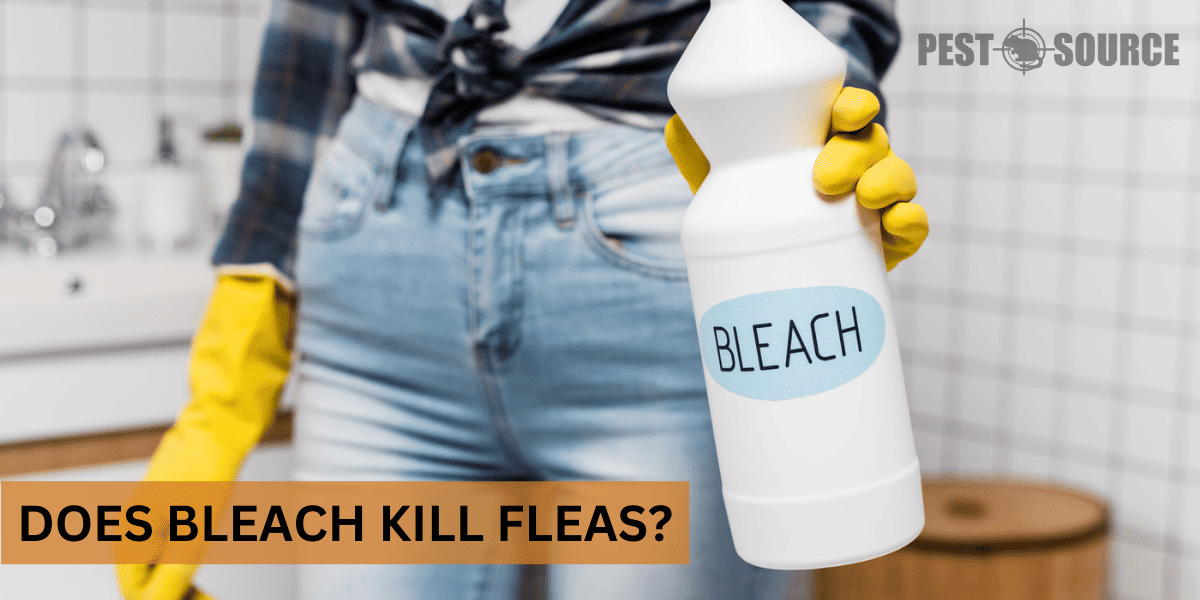With the constant quest for practical and cost-effective pest control methods, there is growing interest in using bleach, a standard household product, as a control method. This readily available cleaning agent contains sodium hypochlorite, which has been found to be effective in killing some pests, including fleas.
In this article, we will explore the potential advantages, efficacy, and risks of using bleach as a flea eradication method, as well as comparing it to other pest control alternatives.
POINTS
- Bleach effectively kills adult fleas, their eggs, and larvae, but it is essential to apply it carefully to avoid harm to pets and damage to surfaces.
- Do not use bleach directly on pets, as it is highly toxic and can cause severe skin irritation, burns, and respiratory issues; instead, consult a veterinarian for appropriate flea treatments.
- While bleach can kill fleas in the yard, it may have adverse effects on plants and the environment; consider safer and more environmentally friendly options like diatomaceous earth or insecticidal sprays for outdoor use.
- There are safer alternatives to using bleach for flea eradication, such as diatomaceous earth, essential oils, boric acid, or insect growth regulators.
- If using bleach to kill fleas, follow safety guidelines such as wearing gloves, ensuring proper ventilation, and avoiding the mixture with other cleaning agents.
Understanding the Impact of Bleach on Fleas
To better understand how bleach impacts fleas, it’s helpful to look at its effectiveness against various life stages of the flea. The following table breaks down the effectiveness of bleach on adult fleas, eggs, and larvae, offering insights into how it works and considerations for its application.
| Life Stage of Flea | Effectiveness of Bleach | Notes on Application |
|---|---|---|
| Adult Fleas | Highly Effective | Kills almost instantly; undiluted bleach is most effective but should be used with caution. |
| Eggs | Highly Effective | Bleach breaks down the protective layer of flea eggs, ensuring they do not hatch. |
| Larvae | Highly Effective | Affects larvae through contact, disrupting development and leading to dehydration and death. |
Does bleach kill fleas, and if so, how does it work?

Bleach generally contains sodium hypochlorite, which effectively kills fleas. The bleach works by breaking down the fleas’ exoskeletons, resulting in dehydration and death. Additionally, bleach’s high pH is toxic to fleas and their eggs and larvae.
How long does it take for bleach to kill fleas?
The time it takes for bleach to kill fleas depends on various factors, such as the concentration of bleach, the size of the infestation, and if the bleach is applied directly or diluted with water. Generally, undiluted bleach will kill fleas almost instantly, whereas diluted bleach can take a few minutes to a few hours.
Does bleach kill flea eggs and larvae, or just the adult fleas?
Bleach effectively kills adult fleas, their eggs, and larvae. However, it is essential to administer the bleach to the affected area without causing harm to your pets or damaging your home’s surfaces.
Does bleach water kill fleas?
Yes, bleach water kills fleas. However, bleach should be adequately diluted with water before use. The recommended concentration for using bleach water to eliminate fleas is typically one part bleach to 10 parts water.
Comparing the Effectiveness of Different Types of Bleach on Fleas
Can Clorox, a specific type of bleach, kill fleas?
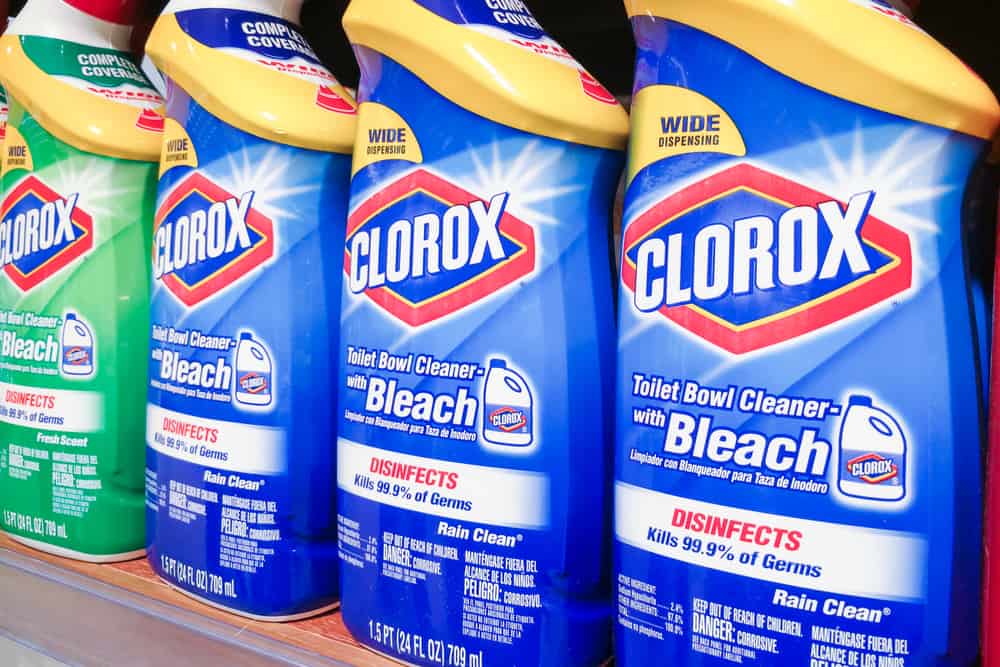
Clorox is a brand that produces bleach-based products, which contains sodium hypochlorite – the active ingredient that kills fleas. Therefore, Clorox bleach can kill fleas effectively.
Do Clorox wipes kill fleas?

Clorox wipes may kill fleas due to their bleach content, but they are not specifically designed for flea eradication. Using Clorox wipes for killing fleas might not produce the desired results and could be less effective than other methods.
Does chlorine, often used interchangeably with bleach, kill fleas?
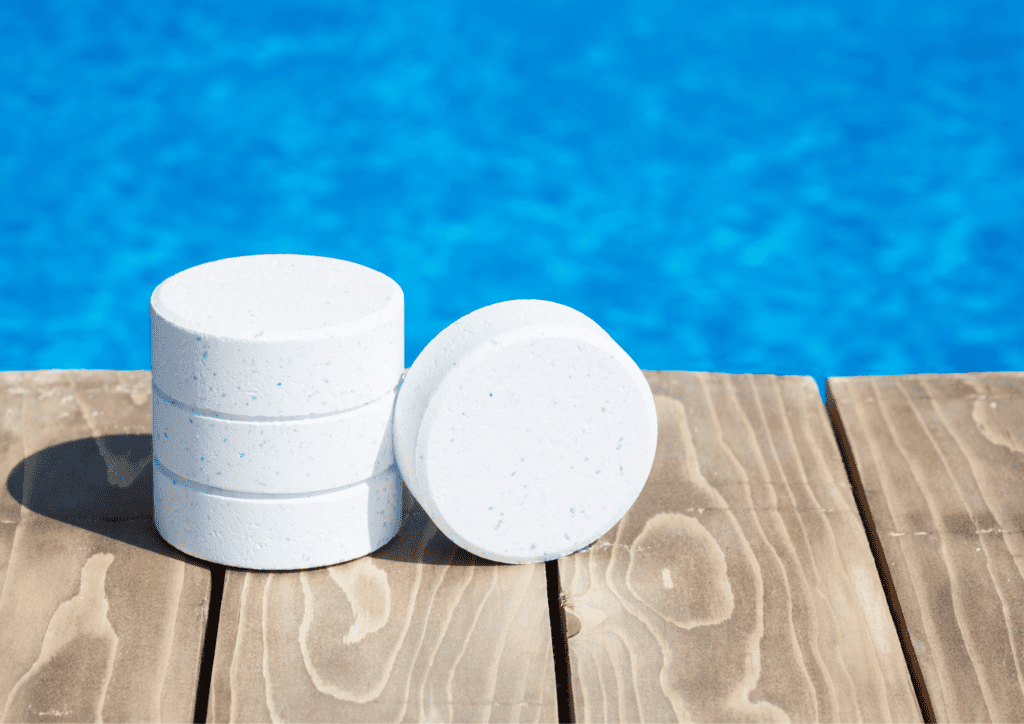
Chlorine and bleach are not the same products. However, both contain chemical compounds that can kill fleas. Chlorine is a disinfectant commonly used as a water treatment while bleach is a cleaning solution used to sanitize surfaces. Both products effectively kill fleas, but bleach is more appropriate for home use in eradicating fleas.
Using Bleach to Treat Fleas in Various Environments
Using bleach to treat fleas effectively requires understanding how it performs in various environments, from indoor spaces to outdoor areas and even on personal items like bedding.
| Environment | Recommended Use | Precautions | Alternatives |
|---|---|---|---|
| Pets | Not recommended directly on pets | Highly toxic, can cause skin and respiratory issues | Consult veterinarian for pet treatments |
| Yard | Dilute and use sparingly | May harm plants and affect soil chemistry | Diatomaceous earth, insecticidal sprays |
| Bedding | Use color-safe bleach in laundry | Follow fabric care instructions | High-temperature washing without bleach |
| Floors | Dilute bleach with water for mopping | Ensure ventilation; avoid mixing with other cleaners | Steam cleaning, vinegar solutions |
Will bleach kill fleas on dogs or other pets?

Using bleach directly on your pets is strongly discouraged. Bleach is highly toxic and can cause severe skin irritation, burns, and respiratory issues if used on animals. To treat fleas on pets, consult your veterinarian for appropriate flea treatments specifically designed for pet use.
Will bleach kill fleas in the yard?

Bleach can kill fleas in the yard. However, applying bleach directly onto your lawn can have adverse effects on your plants and the environment. It’s essential to dilute the bleach and weigh out the risks before applying it to your yard. Alternatively, consider safer and more environmentally friendly options like diatomaceous earth or insecticidal sprays specially designed for outdoor use.
Does washing bedding in bleach kill fleas?

Washing bedding in bleach is an effective way to kill fleas, their eggs, and larvae. However, ensure that you use a color-safe bleach if the fabric’s colors are prone to fading. Also, always follow the care label instructions on your bedding to avoid any damage.
What should you mop floors with to kill fleas?
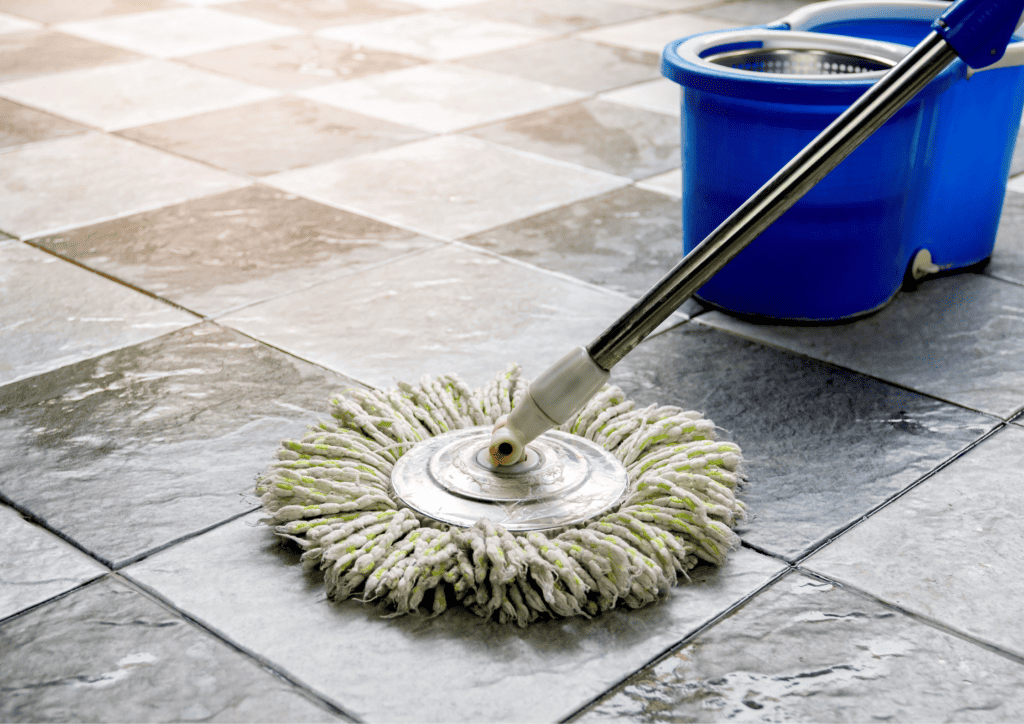
To kill fleas on floors, mop using a mixture of bleach and water. Mix one part bleach with ten parts of water to create a solution that’s effective in killing fleas without damaging the floor’s surface. Ensure proper ventilation while using bleach and avoid mixing it with other cleaning agents.
Comparing the Effectiveness of Bleach on Fleas and Other Pests
Does bleach also kill other insects, like wasps, roaches, termites, and ground bees?
Bleach is not only a potent agent against fleas but also can be effective against a range of other pests. The following table provides a comparative overview of how bleach performs against fleas, wasps, roaches, termites, and ground bees, including its effectiveness and any specific considerations for use against each pest.
| Pest | Effectiveness of Bleach | Specific Considerations |
|---|---|---|
| Fleas | Highly Effective | Kills adults, eggs, and larvae; use with caution around pets |
| Wasps | Moderately Effective | Can kill on contact but not recommended for nest treatment |
| Roaches | Highly Effective | Effective in killing on contact but not a long-term solution |
| Termites | Low Effectiveness | May kill on contact but does not address infestation source |
| Ground Bees | Moderately Effective | Can be effective but risks harming beneficial insects and plants |
Bleach can be effective in killing various insects, including wasps, roaches, termites, and ground bees, since its chemical properties can break down the exoskeletons of these pests. However, bleach may not be the best option for all types of pests, as it can cause damage to surfaces and is not a targeted pest-control solution. Utilizing specialized treatments and pesticides would be more effective for different insect infestations.
How long does it take for bleach to kill these other pests?
The time it takes for bleach to kill other pests varies depending on the concentration of bleach used and the specific pest. Generally, undiluted bleach will kill most insects quickly, while diluted bleach may take a few minutes to a few hours.
Exploring Alternatives to Bleach for Flea Eradication
Does Fabuloso, another type of cleaning agent, kill fleas?
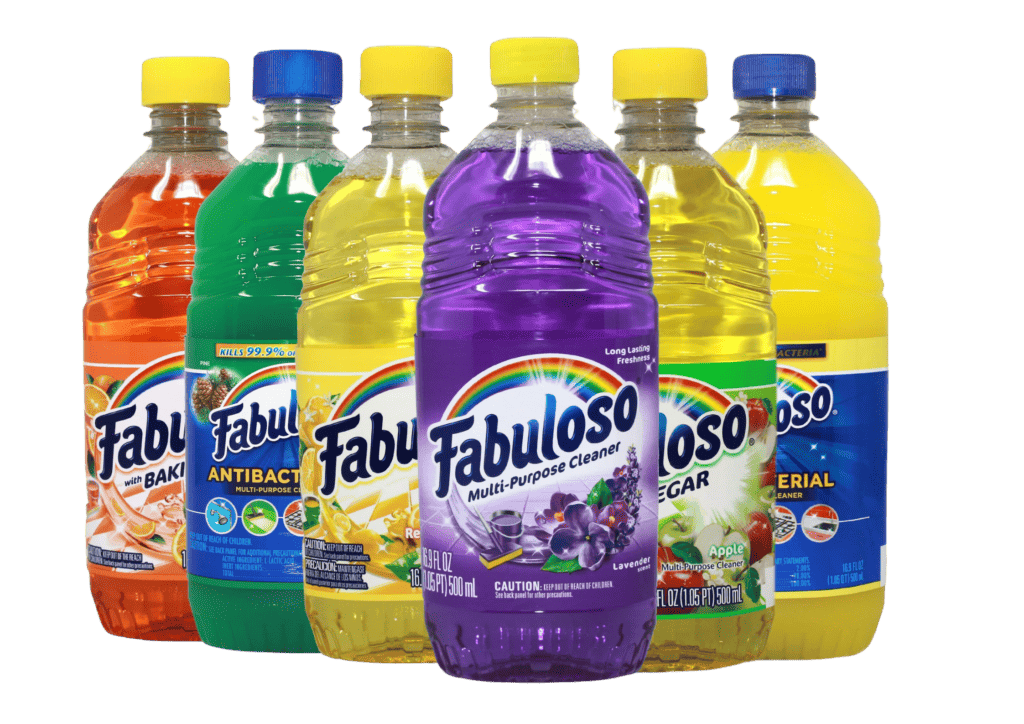
Fabuloso is a multi-purpose cleaning agent and does not contain the same chemical compounds found in bleach. As a result, it may not effectively kill fleas or their eggs and larvae. Bleach remains a more potent solution to eradication.
How long does it take for alternatives like salt to kill fleas?
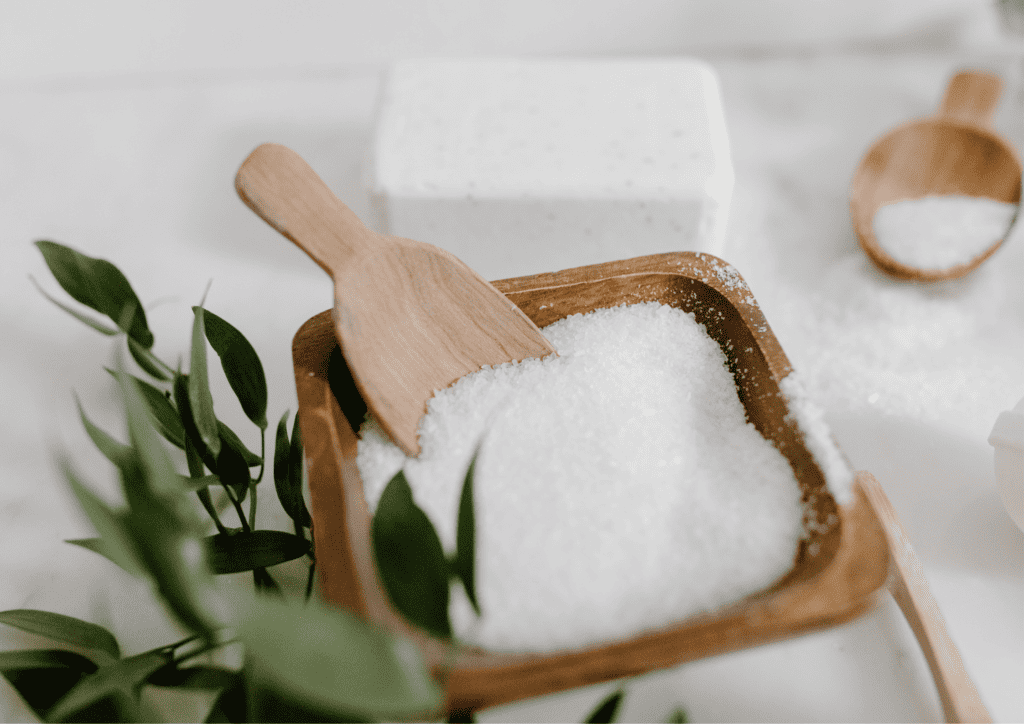
Salt is a natural alternative to bleach that dehydrates fleas, killing them as a result. However, it is most effective on adult fleas and may not impact flea eggs and larvae. The time it takes for salt to kill fleas depends on the size of the infestation but may typically take anywhere from a few hours to a few days.
Do fleas die in the washer, even without bleach?

Washing infested items at a high temperature, ideally above 140 degrees Fahrenheit, can kill fleas without adding bleach to the wash. However, using bleach in combination with hot water will provide an extra layer of protection against any remaining eggs or larvae.
Assessing the Safety and Risks of Using Bleach for Flea Treatment
How safe is it to use bleach for killing fleas?
When used as directed, bleach can be a safe and effective solution for killing fleas. However, it is crucial to take safety precautions while handling bleach, such as wearing gloves, ensuring proper ventilation, and never combining it with other cleaning agents that may cause a chemical reaction.
How long does it take for bleach to potentially harm humans or pets?
Bleach poses a risk to humans and pets if ingested, inhaled, or if it comes into contact with their skin or eyes. Symptoms of exposure can occur within minutes, such as:
- Skin irritation
- Respiratory distress
- In severe cases, chemical burns
Always use bleach cautiously and keep it out of reach from children and pets.
Are there safer alternatives to using bleach for killing fleas?
There are many safer alternatives to using bleach for flea eradication. Some options include:
- Diatomaceous earth: A natural, non-toxic powder that dehydrates and kills fleas
- Essential oils: Certain essential oils like cedarwood and lavender have insecticidal properties and can help repel fleas
- Boric acid: A low-toxicity substance that kills fleas by damaging their exoskeletons
- Insect growth regulators: They inhibit the growth and reproduction of fleas
It’s essential to research and choose an alternative that suits your needs and is safe for both your family and pets.
Conclusion: The Role of Bleach in Flea Eradication
In summary, bleach plays a significant role in killing fleas, as well as their eggs and larvae. However, it must be used with caution to avoid potential harm to humans, pets, and the environment. Bleach can be used as a reliable solution indoors, especially on non-porous surfaces or in combination with hot water when washing infested items.
When using bleach as a flea treatment, always follow the safety guidelines, such as wearing gloves, ensuring proper ventilation, and not mixing it with other cleaning agents. If you are uncertain about using bleach to deal with a flea infestation, consult a professional pest control service or consider safer alternatives like diatomaceous earth and essential oils.
Remember that prevention is always better than cure. Keep your living spaces clean, treat your pets regularly with veterinary-approved flea treatments, and maintain your yard to prevent future flea infestations.

